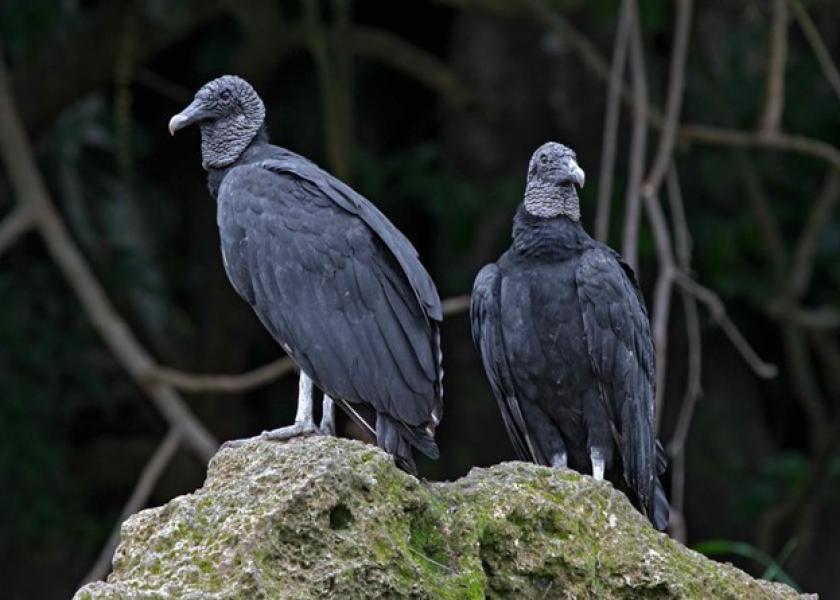NCBA Member Testifies in Support of Black Vulture Relief Act

WASHINGTON (July 27, 2023) – Today, National Cattlemen’s Beef Association member and Missouri cattle producer Charlie Besher testified before the House Natural Resources Water, Wildlife and Fisheries Subcommittee in support of the Black Vulture Relief Act. Besher, the chairman of NCBA’s Property Rights and Environmental Management Committee, shared how predatory black vultures take a toll on cattle producers’ livestock and livelihoods.
“Black vultures play a role in the ecosystem, and cattle producers have no desire to eradicate the species, but to continue managing them under such a restrictive system is ludicrous. The species is abundant across the continent, and no longer a conservation concern. These birds are extremely vicious predators and their attacks on cattle are devastating, both emotionally and financially,” said Besher. “As a cow-calf producer who has invested for years in voluntary conservation in Missouri, I’m proud to testify in support of the commonsense Black Vulture Relief Act. On behalf of NCBA and the thousands of producers who are losing cattle each year to black vultures, I urge Congress to pass this legislation to give farmers and ranchers more tools to protect their livestock.”
After 50 years of federal protections, black vultures now number 190 million strong and are an abundant species across the country. Even though a growing number of producers lose calves each year to black vulture depredation, the current framework for lethal take is overly restrictive and burdensome.
Introduced by Rep. John Rose (R-TN) and Rep. Darren Soto (D-FL), the Black Vulture Relief Act is bipartisan legislation that would allow cattle producers to take vultures without a permit, when there is an immediate need to protect their livestock from injury or death. Currently, the U.S. Fish and Wildlife Service issues black vulture depredation permits to states and states issue sub-permits to producers, but these permits only allow for take of three individual animals per year. Given that black vultures can attack multiple times a month in flocks as large as 50, the current permits are completely insufficient to address the problem. Black vulture numbers are also on the rise, and they attack cattle in a particularly vicious way, usually targeting calves hours or even minutes after birth.
The Black Vulture Relief Act is also supported by numerous NCBA state affiliates.
View the testimony here.







